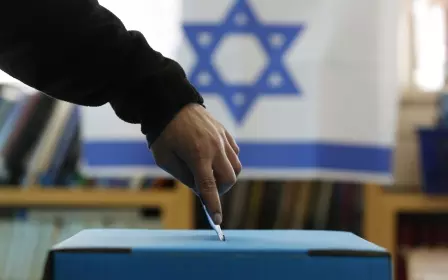Tens of thousands of Israelis protest against Netanyahu justice plans

Tens of thousands of Israelis joined demonstrations in Tel Aviv on Saturday against judicial reform plans by Prime Minister Benjamin Netanyahu's new government that protesters say will threaten democratic checks and balances on ministers by the courts.
The plans, which the government says are needed to curb overreach by activist judges, have drawn fierce opposition from groups including lawyers, and raised concerns among business leaders, widening already deep political divisions in Israeli society.
Among those protesting was former Israeli prime minister Yair Lapid.
"People who love the state came to defend its democracy, its courts, the idea of a common life and a common good," Lapid tweeted, vowing to "not give up until we win".

Netanyahu has dismissed the protests, now in their third week, as a refusal by leftist opponents to accept the results of last November's election, which produced one of the most right-wing governments in Israel's history.
The protesters say the future of Israeli democracy is at stake if the plans, which would tighten government control over judicial appointments and limit the Supreme Court's powers to review government decisions, go through.
"They want to turn us into a dictatorship, they want to destroy democracy," the head of the Israeli Bar Association, Avi Chimi said. "They want to destroy judicial authority, there is no democratic country without a judicial authority."
As well as threatening the independence of judges and weakening oversight of the government and parliament, they say the plans will undermine the rights of minorities and open the door to more corruption.
"We are fighting for democracy," said Amnon Miller, 64, among crowds of protesters, many bearing white-and-blue Israeli flags.
"We fought in this country in the army for 30 years for our freedom, and we won't let this government take our freedom."
'We fought in this country in the army for 30 years for our freedom and we won't let this government take our freedom'
- Amnon Miller, 64, protester
Saturday's protests, which Israeli media said were expected to draw more than 100,000 people to central Tel Aviv, come days after the Supreme Court ordered Netanyahu to fire Interior Minister Aryeh Deri, who leads the religious ultra-Orthodox Shas party, over a recent tax conviction.
Deri is one of Netanyahu's most experienced allies.
Last week almost all the prosecutors and state attorneys that have served in Israel in the last half-century jointly warned that planned reforms to the country's justice system would "destroy" judicial independence.
"We call on the government to withdraw the proposed plan and prevent serious harm to the justice system and the rule of law," they said in the letter, referring to a new plan that would expand the government's power to appoint judges and impede the High Court's power to restrain parliament.
Currently, the High Court can disqualify government legislation if it contradicts Israel's 13 basic laws, particularly the Human Dignity and Liberty Basic Law. Israel's basic laws are intended to be part of the future constitution, which does not exist yet.
The reform plan, however, proposes an "override clause", which will allow parliament members to reenact a law disqualified by the High Court with a simple majority of 61 MPs.
Corruption charges
The new government, which took office this month, is an alliance between Netanyahu's Likud party and a clutch of smaller religious and hard-right nationalist parties which say they have a mandate for sweeping change.
Netanyahu, who is himself on trial on corruption charges, which he denies, has defended the judicial reform plans, which are being examined by a parliamentary committee, saying they will restore a proper balance between the three branches of government. He would personally benefit from the weakening of the courts.
Since being indicted in 2019, Netanyahu has railed publicly against the justice system, calling it biased against him.
Likud has long accused the Supreme Court of being dominated by left-wing judges who it says encroach on areas outside their authority for political reasons. The court's defenders say it plays a vital role in ensuring accountability in a country that has no formal constitution to contain government action.
A survey released by the Israel Democracy Institute last week showed trust in the Supreme Court was markedly higher among left-wing Israelis than among those on the right, but that there was no overall support for weakening the court's powers.
Middle East Eye delivers independent and unrivalled coverage and analysis of the Middle East, North Africa and beyond. To learn more about republishing this content and the associated fees, please fill out this form. More about MEE can be found here.




